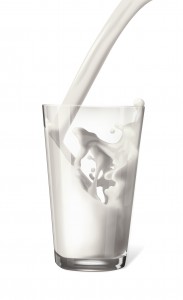 consumer expenditure and problems in some countries with regard to health claims legislation, interest in healthy options appears to be continuing unabated, according to market research organisation Innova Market Insights.
consumer expenditure and problems in some countries with regard to health claims legislation, interest in healthy options appears to be continuing unabated, according to market research organisation Innova Market Insights.Nearly 40 per cent of the global food and drinks launches recorded by Innova Market Insights in 2013 were positioned on a health platform of some kind, mainly in terms of so-called “passive” benefits, such as low and light products, but also increasingly on an “active” health platform. These claims included promoting added health benefits, such as vitamin fortification or the use of probiotics, as well as more specific benefits, such as gut health.
While products marketed on a passive health positioning accounted for over 35 per cent of global launches recorded, those promoting active benefits accounted for just 9 per cent of the total. Innova Market Insights said the overlap indicated that some products were marketed featuring both types of benefit.
Category trends
Globally, dairy launches accounted for the largest number of health claims, ahead of soft drinks, with bakery products in third place.
The penetration of health claims was much higher in the first two of these categories, according to Innova Market Insights. Nearly two thirds (61 per cent) of soft drinks launches and 60 per cent of dairy launches used claims in 2013, compared with just 31 per cent of bakery introductions.
‘Probiotic’ claim trends
The number of products marketed specifically on a “probiotic” platform continued to grow globally until 2012, peaking at a share of about 0.7 per cent of total global food and drinks launches in that year, according to Innova Market Insights.
“The initial functional foods on the European market were probiotic yogurts,” said Lu Ann Williams, Director of Innovation at Innova Market Insights. “But their market position has been complicated by the ongoing refusal of the European Food Safety Authority (EFSA) to approve probiotic health claims,” she said.
In 2013, probiotic claims’ share of total global food and drinks launches fell back to less than 0.5 per cent. Within dairy, products marketed on a specific probiotic platform accounted for 3 per cent of global launches in 2013, down from 5 per cent in 2012. However, a much more significant 16 per cent used a more general digestive or gut health positioning of some kind.
Greek-style yoghurts’ popularity leads to high protein claims
Innova Market Insights said the rise of Greek and Greek-style strained yogurts, which are inherently higher in protein than standard products, had also paved the way for a new area of interest – yogurts marketed on a high-protein platform. Although most of these are also probiotic, some companies were now diverting attention away from digestive health toward nutrient content.





